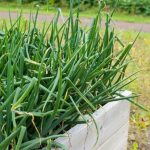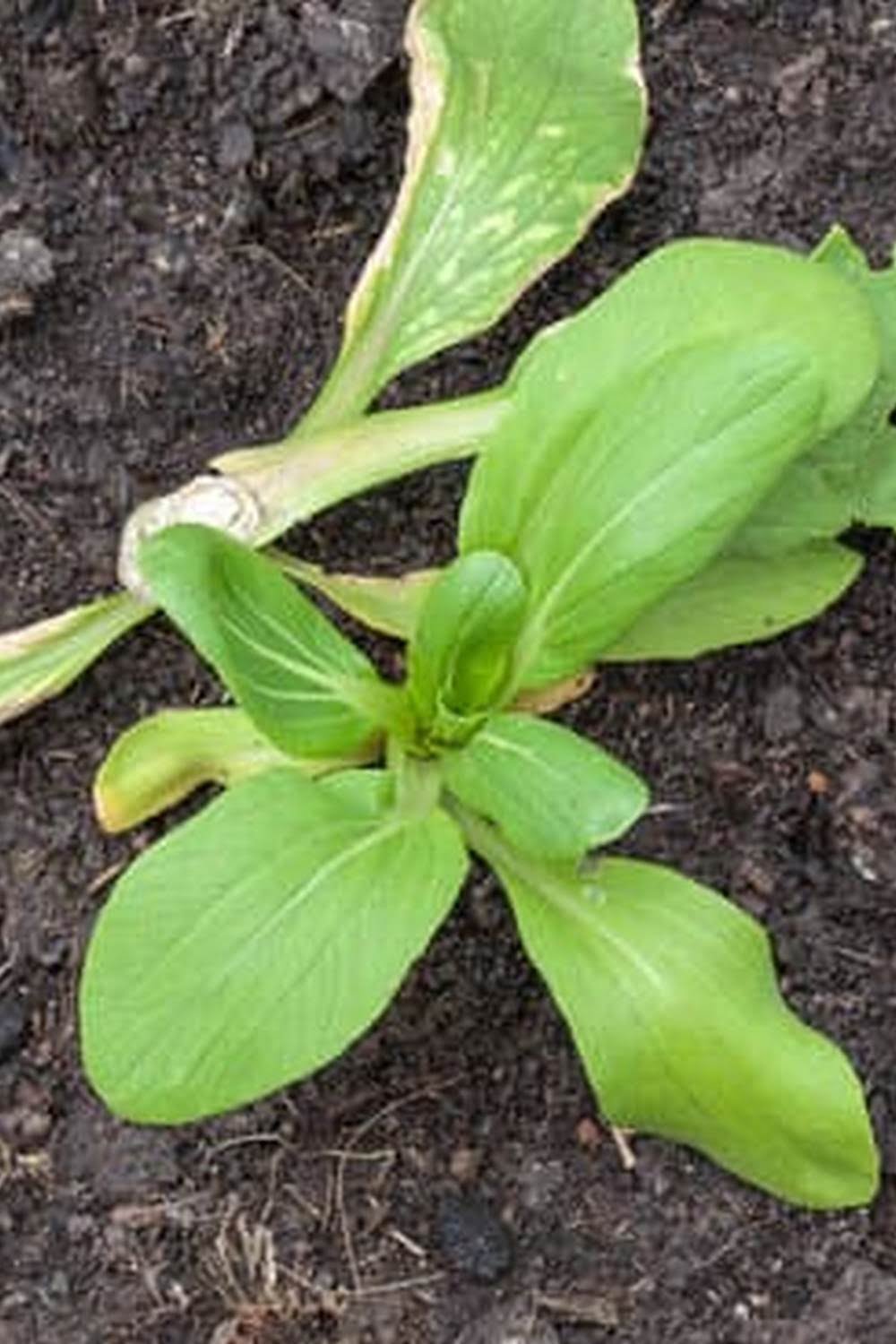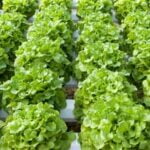Expanding garden soil, also known as expandable soil or hydrogel crystals, is a revolutionary gardening product that absorbs water and expands in size to improve soil quality. Gardeners often wonder: can expanding garden soil be used in vegetable gardens? The answer is yes. Soil quality plays a vital role in the health and growth of vegetables, making it essential to explore the benefits and considerations of using expanding garden soil in these types of gardens.
In vegetable gardens, the quality of the soil can significantly impact plant development. Expanding garden soil offers benefits such as improved aeration and drainage, which are crucial for healthy root systems. Additionally, this type of soil aids in nutrient retention, providing plants with essential elements for robust growth. By incorporating expanding garden soil into vegetable gardens, gardeners can create optimal conditions for their crops to thrive.
When considering the types of vegetables suitable for expanding garden soil, root vegetables, leafy greens, and fruit-bearing plants are excellent choices. These varieties can benefit from the enhanced moisture retention and nutrient availability provided by expanding garden soil. By understanding how to effectively use this type of soil in vegetable gardens and maintaining proper care practices, gardeners can set their plants up for success.
Benefits of Expanding Garden Soil
Expanding garden soil, also known as expanding potting mix, is a unique type of soil that swells and expands when water is added, making it a popular choice for container gardening and improving soil quality in vegetable gardens. This specialized soil blend is designed to improve aeration and drainage, two key factors that contribute to healthy plant growth. The ability of expanding garden soil to retain moisture properly ensures that plants receive the necessary nutrients they need to thrive.
Improved Aeration and Drainage
One of the primary benefits of using expanding garden soil in vegetable gardens is its ability to improve aeration and drainage. The structure of this type of soil allows for better airflow around plant roots, promoting root development and preventing issues such as root rot. Additionally, the enhanced drainage properties help prevent waterlogged soil, which can lead to oxygen deprivation and nutrient deficiencies in plants.
Nutrient Retention for Healthy Plant Growth
Expanding garden soil has excellent nutrient retention capabilities, ensuring that essential plant nutrients are available for uptake by vegetable plants. This helps promote healthy foliage growth, robust root systems, and improved fruit production. By providing a balanced supply of nutrients to vegetables throughout the growing season, expanding garden soil contributes to overall plant health and productivity.
In summary, using expanding garden soil in vegetable gardens can greatly benefit plant growth by improving aeration and drainage while ensuring proper nutrient retention. Gardeners looking to optimize their vegetable harvests should consider incorporating this specialized soil blend into their gardening practices to create optimal growing conditions for their crops.
Types of Vegetables Suitable for Expanding Garden Soil
When considering which types of vegetables are suitable for growing in expanding garden soil, it is important to take into account the need for proper aeration, drainage, and nutrient retention. Certain varieties of vegetables thrive in these conditions and can produce healthy and vibrant crops. Here are some examples of vegetables that can benefit from using expanding garden soil in your vegetable garden:
- Root Vegetables: Root vegetables such as carrots, radishes, and potatoes can greatly benefit from the improved aeration and drainage provided by expanding garden soil. The loose texture of this type of soil allows for better root development and prevents issues like rotting.
- Leafy Greens: Vegetables like lettuce, spinach, and kale also do well in expanding garden soil due to their shallow root systems. The increased nutrient retention in this type of soil helps promote lush foliage growth and overall plant health.
- Fruit-Bearing Plants: Tomatoes, peppers, cucumbers, and other fruit-bearing plants can thrive in expanding garden soil because of its ability to provide essential nutrients for robust fruit production. The improved drainage also helps prevent waterlogged conditions that can lead to fruit damage.
By choosing the right types of vegetables for your expanding garden soil, you can expand the range of crops you grow successfullly while reaping the benefits it offers for optimal plant growth. Whether you are a beginner or experienced gardener, experimenting with different varieties within these categories can help you achieve greater success with your vegetable gardening efforts.
With proper care and attention to individual plant needs, expanding garden soil can truly enhance the productivity and health of your vegetable garden.
How to Use Expanding Garden Soil in Vegetable Gardens
Expanding garden soil is a valuable resource that can greatly benefit vegetable gardens. When used correctly, it can enhance the growth and productivity of your plants. Here are some ways in which expanding garden soil can be effectively utilized in your vegetable garden:
- Mixing with existing soil: One of the simplest ways to incorporate expanding garden soil into your vegetable garden is by mixing it with the existing soil. This can help improve aeration, drainage, and nutrient retention. Simply blend the expanding garden soil thoroughly with the native soil before planting your vegetables.
- Container gardening with expanding garden soil: Another popular method of utilizing expanding garden soil in vegetable gardens is through container gardening. You can fill containers or raised beds with a mixture of expanding garden soil and organic matter to create an ideal growing environment for your vegetables. This method allows for better control over the quality of the soil and makes it easier to adjust conditions for specific plants.
Using expanding garden soil in your vegetable garden can enhance the overall health and vitality of your plants. By incorporating this nutrient-rich material into your gardening practices, you can expand the potential for successful harvests and thriving crops.
Remember to follow specific instructions provided on packaging when using expanding garden soil and always consider the individual needs of different types of vegetables that you plan to grow in order to maximize their growth potential within this enriched growing medium.
Considerations Before Using Expanding Garden Soil
Expanding garden soil, also known as expanding potting soil, is a specialized type of soil that contains materials such as peat moss, coconut coir, and vermiculite that can expand in volume when watered. This unique characteristic helps improve aeration and drainage in the soil, making it an attractive option for vegetable gardening.
The quality of soil used in vegetable gardens plays a crucial role in the overall health and productivity of plants. Therefore, considering certain factors before using expanding garden soil is essential to ensure successful growth.
pH Levels and Soil Testing
One important consideration before using expanding garden soil in vegetable gardens is the pH levels of the soil. Different vegetables have varying pH preferences, so it is advisable to conduct a soil test to determine the current pH level of your garden bed.
Expanding garden soil tends to be acidic due to the presence of peat moss, so adjusting the pH levels may be necessary to meet the requirements of specific vegetables. Adding lime or sulfur can help modify the pH balance accordingly.
Adjusting Nutrient Levels for Specific Vegetables
Another factor to consider before incorporating expanding garden soil in vegetable gardens is the nutrient content of the soil. While expanding garden soil retains nutrients well due to its composition, some vegetables may require additional fertilization to thrive. Before planting, it is recommended to research the nutrient needs of the vegetables you plan to grow and supplement the soil with organic or synthetic fertilizers as needed. Balancing nutrient levels ensures healthy plant growth and abundant harvests.
Tips for Maintaining Vegetables in Expanding Garden Soil
Expanding garden soil can be a valuable addition to vegetable gardens, providing numerous benefits for plant growth. When it comes to maintaining vegetables in expanding garden soil, proper watering and moisture control are essential factors to consider.
Since expanding garden soil has the ability to retain water well, it is important to monitor the moisture levels regularly to prevent over-saturation which can lead to root rot. A good practice is to check the soil’s moisture content by feeling it with your fingers or using a moisture meter.
In addition to watering, fertilization schedule and requirements play a crucial role in maintaining vegetables in expanding garden soil. Nutrients are vital for healthy plant growth, and while expanding garden soil provides some initial nutrients, additional fertilization may be necessary depending on the type of vegetables being grown. It is recommended to follow a proper fertilization schedule based on the specific needs of the vegetables in order to ensure they receive adequate nutrients for optimal development.
Proper maintenance of vegetables in expanding garden soil also involves regular monitoring of plant health and growth. Observing any changes in the plants such as discoloration of leaves, stunted growth, or pest infestations can help identify and address potential issues early on. By staying attentive to the needs of the plants and providing them with proper care, gardeners can enjoy successful harvests from their vegetable gardens using expanding garden soil.
| Maintenance Tips | Benefits |
|---|---|
| Proper watering and moisture control | Prevents over-saturation and root rot |
| Fertilization schedule and requirements | Ensures adequate nutrients for plant growth |
| Regular monitoring of plant health | Early detection of issues for timely intervention |
Common Mistakes to Avoid When Using Expanding Garden Soil
Expanding garden soil, also known as expanding potting soil, is a unique type of soil that increases in volume when water is added. This can be beneficial for vegetable gardens as it promotes better aeration, drainage, and nutrient retention. However, there are some common mistakes that gardeners should avoid to ensure successful growth and health of their vegetable plants.
One common mistake to avoid when using expanding garden soil in vegetable gardens is over-watering. While the soil does expand and hold more water than traditional types of soil, excessive watering can lead to waterlogged conditions that may cause root rot in plants. It is important to monitor the moisture levels in the soil and adjust watering accordingly to prevent this issue.
Another mistake to steer clear of is neglecting the need for additional nutrients. While expanding garden soil can provide a good base for plant growth, it may not contain all the necessary nutrients that specific vegetables require for optimal development. Gardeners should supplement with fertilizers or compost to ensure that their plants are receiving adequate nourishment throughout the growing season.
Moreover, proper monitoring and care are essential when using expanding garden soil in vegetable gardens. By being attentive to watering practices, nutrient levels, and overall plant health, gardeners can avoid common pitfalls and set their vegetables up for success in this type of specialized soil.
| Common Mistakes | Avoidance Tips |
|---|---|
| Over-watering leading to root rot | Monitor moisture levels and adjust watering accordingly |
| Ignoring the need for additional nutrients | Supplement with fertilizers or compost for proper plant nourishment |
Conclusion
In conclusion, expanding garden soil can certainly be used in vegetable gardens to improve soil quality and promote healthy plant growth. The benefits of using expanding garden soil, such as improved aeration, drainage, and nutrient retention, make it a valuable addition to any gardening endeavor. By selecting the right types of vegetables that are compatible with expanding garden soil, such as root vegetables, leafy greens, and fruit-bearing plants, gardeners can maximize their harvest potential.
When incorporating expanding garden soil into vegetable gardens, it is important to consider factors like pH levels, soil testing, and adjusting nutrient levels to meet the specific needs of the plants being grown. By mixing the expanding garden soil with existing soil or utilizing it for container gardening, gardeners can tailor their approach to suit their individual gardening goals and space constraints.
As with any gardening practice, proper maintenance is key to successful results when using expanding garden soil. Establishing a consistent watering and fertilization schedule is crucial for supporting plant health and maximizing yield potential.
By avoiding common mistakes like over-watering and neglecting additional nutrient requirements, gardeners can ensure that their vegetable gardens thrive with the use of expanding garden soil. In essence, experimenting with different soil types can lead to a more diverse and bountiful harvest for those who cultivate their own fruits and vegetables at home.
Frequently Asked Questions
What Kind of Soil Do You Use for a Vegetable Garden?
The best soil for a vegetable garden is loamy soil, which is a mixture of sand, silt, and clay. It provides good drainage and aeration for the plants’ roots, as well as retaining moisture and nutrients.
Can You Use Raised Garden Bed Soil in the Ground?
Raised garden bed soil can be used in the ground, but it may not be ideal depending on the existing soil conditions. It’s important to consider factors like drainage, nutrients, and pH levels when using raised bed soil directly in the ground.
Is It Safe to Grow Vegetables in Miracle Grow Potting Soil?
While Miracle-Gro potting soil is convenient and widely available, some gardeners prefer to avoid it for growing vegetables due to concerns about synthetic fertilizers or additives present in the mix. Opting for organic potting soils might be a safer choice when growing edible crops.

If you’re looking to get into vegetable gardening, or are just looking for some tips on how to make your current garden better, then you’ve come to the right place! My name is Ethel and I have been gardening for years. In this blog, I’m going to share with you some of my best tips on how to create a successful vegetable garden.





